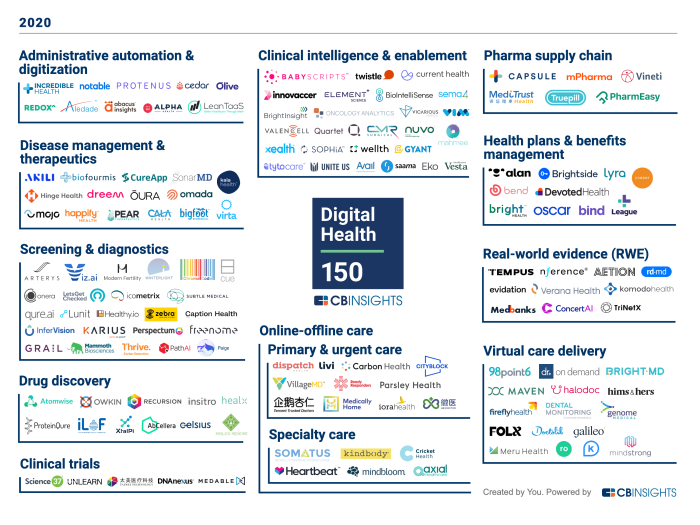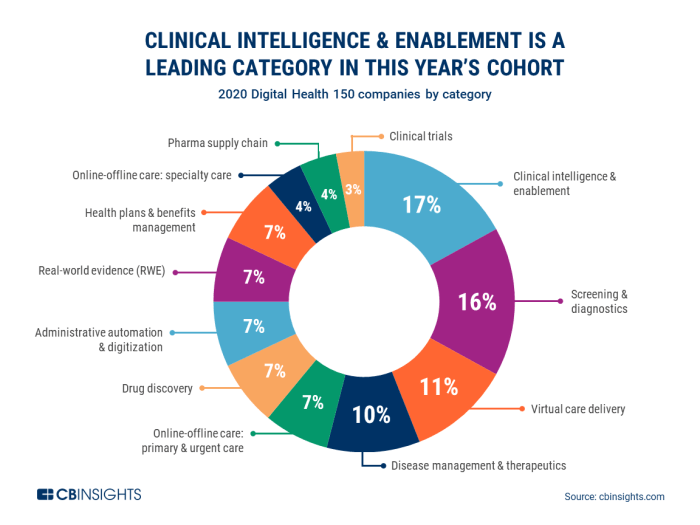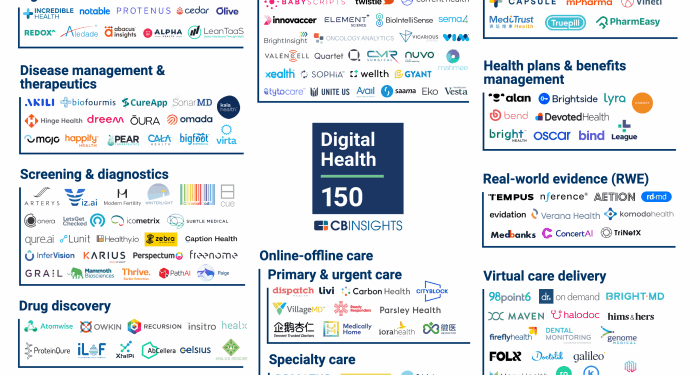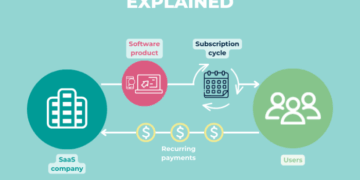Exploring the dynamic landscape of Startups & Health Coverage: Key Trends This Year provides valuable insights into the evolving strategies and innovations shaping the industry. From the challenges faced by startups to the latest trends and technological integrations, this discussion offers a comprehensive view of the intersection between entrepreneurship and healthcare benefits.
Overview of Startups & Health Coverage
In the world of startups, providing health coverage for employees is a crucial aspect of creating a healthy and productive work environment. Health coverage refers to the benefits and services that help cover medical expenses for employees, ensuring they have access to necessary healthcare.
Importance of Health Coverage for Startup Employees
- Health coverage helps attract top talent: Offering comprehensive health benefits can make a startup more appealing to potential employees, helping attract and retain top talent in a competitive market.
- Improves overall well-being: Access to healthcare services and coverage can improve the overall well-being of employees, leading to higher job satisfaction and productivity.
- Reduces financial burden: Health coverage can help alleviate the financial burden of medical expenses for employees, ensuring they can focus on their work without worrying about healthcare costs.
Challenges Startups Face in Providing Comprehensive Health Coverage
- Cost constraints: Startups often operate on limited budgets, making it challenging to afford comprehensive health coverage for all employees.
- Administrative complexities: Managing health benefits and navigating the complex healthcare system can be overwhelming for startups with limited resources and expertise.
- Flexibility and customization: Startups may struggle to find health coverage options that meet the diverse needs of their employees, leading to challenges in providing tailored benefits.
Current Trends in Startups & Health Coverage
Startups are continuously evolving to meet the changing needs of employees when it comes to health coverage. Let's take a closer look at some of the latest trends shaping the landscape of health coverage benefits provided by startups and the impact they have on the startup ecosystem.
Telemedicine Services Integration
One of the prominent trends in health coverage offered by startups is the integration of telemedicine services. Startups are partnering with telehealth providers to offer employees virtual consultations, prescription refills, and mental health support through online platforms. This trend not only provides convenient access to healthcare but also reduces healthcare costs for both startups and employees.
Personalized Wellness Programs
Startups are focusing on personalized wellness programs that cater to the individual health needs of employees. These programs often include fitness challenges, nutrition counseling, and stress management techniques tailored to each employee's health goals. By offering personalized wellness programs, startups are promoting a culture of well-being and employee engagement within their organizations.
Flexible Health Benefits Packages
Another trend observed in startups is the provision of flexible health benefits packages. Startups are offering employees the flexibility to choose from a variety of health coverage options based on their individual needs and preferences. This flexibility allows employees to select the coverage that best suits their lifestyle and family requirements, ultimately enhancing their overall satisfaction and well-being.
Technology Integration in Health Coverage

Startups are leveraging technology to revolutionize health coverage for their employees, providing more efficient and personalized solutions. By integrating innovative technological tools, startups can streamline processes, enhance access to healthcare services, and improve overall employee well-being.
Examples of Technological Solutions Improving Health Coverage for Startup Employees
- Telemedicine platforms: Startups are partnering with telemedicine providers to offer virtual consultations, making healthcare more accessible and convenient for employees.
- Wellness apps: Employers are utilizing wellness apps to promote healthy habits among employees, encouraging physical activity, mindfulness, and proper nutrition.
- Data analytics tools: Startups are using data analytics to identify health trends among their workforce, allowing for targeted interventions and preventive measures.
Advantages and Challenges of Technology Integration in Health Coverage for Startups
- Advantages:
- Cost-effective solutions: Technology can help startups provide comprehensive health coverage at a lower cost, making it more sustainable for the company.
- Improved access to care: Technological solutions enable employees to access healthcare services more easily, leading to better health outcomes.
- Enhanced employee engagement: By offering tech-driven health coverage, startups can increase employee engagement and satisfaction, leading to higher retention rates.
- Cost-effective solutions: Technology can help startups provide comprehensive health coverage at a lower cost, making it more sustainable for the company
- Challenges:
- Data security concerns: With the use of technology comes the risk of data breaches and privacy issues, requiring startups to invest in robust security measures.
- Integration complexities: Implementing new technological solutions can be complex and time-consuming, requiring proper training and support for employees.
- Digital divide: Not all employees may have access to or be comfortable with technology, posing challenges in ensuring equal access to health coverage benefits.
Comparison with Traditional Health Coverage Models

When comparing health coverage offerings between startups and traditional corporate health plans, several key differences emerge in terms of benefits, flexibility, and cost.
Benefits
- Startup health coverage plans often focus on providing tailored benefits that cater to the unique needs of employees, such as mental health support, wellness programs, and flexible work arrangements.
- Traditional corporate health plans may offer a more standardized set of benefits, which might not always meet the diverse needs of employees.
Flexibility
- Startups tend to offer more flexibility in health coverage, allowing employees to choose from a range of options based on their individual preferences and circumstances.
- Traditional models may have limited flexibility, with fewer choices available to employees, leading to a one-size-fits-all approach.
Cost
- Startup health coverage plans may be more cost-effective for both employers and employees, as they often leverage technology and innovative solutions to reduce overall healthcare expenses.
- Traditional corporate health plans may come with higher costs due to administrative overhead, legacy systems, and less efficient utilization of resources.
Potential Long-term Implications
- Startups' focus on personalized, flexible, and cost-effective health coverage could lead to improved employee satisfaction, retention, and overall well-being in the long run.
- Traditional models may need to adapt and incorporate some of the innovative practices seen in startup health coverage to stay competitive and meet the evolving needs of the workforce.
Conclusion
In conclusion, the trends and developments in Startups & Health Coverage highlighted in this discussion underscore the importance of adapting to changing dynamics in the healthcare landscape. As startups continue to innovate and leverage technology to enhance employee benefits, the future holds promising possibilities for redefining health coverage standards in the entrepreneurial realm.
FAQs
What are some challenges startups face in providing comprehensive health coverage?
Startups often struggle with limited resources and high costs when trying to offer extensive health coverage to their employees.
How do startups differ in their health coverage offerings compared to traditional corporate health plans?
Startups tend to focus on more flexible and innovative health coverage solutions tailored to the needs of their dynamic workforce, whereas traditional corporate plans may offer more standardized benefits.
What advantages does technology integration offer for startups in enhancing health coverage?
Technology integration allows startups to streamline processes, offer personalized benefits, and improve access to healthcare resources for their employees.









